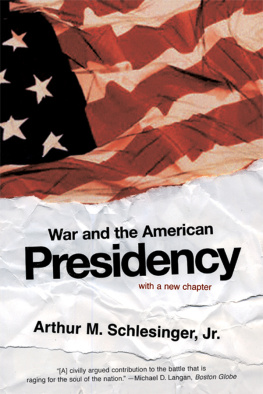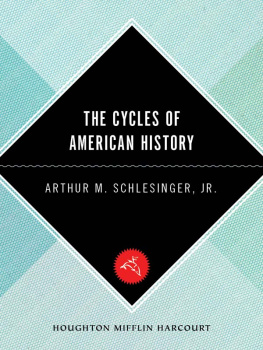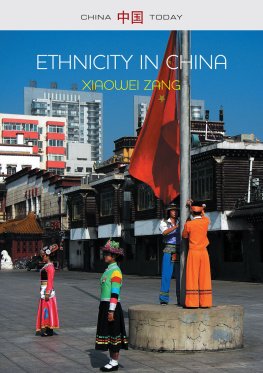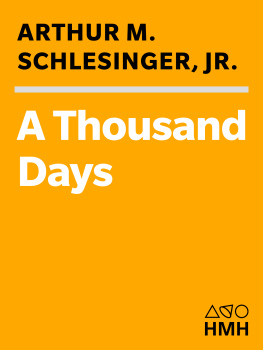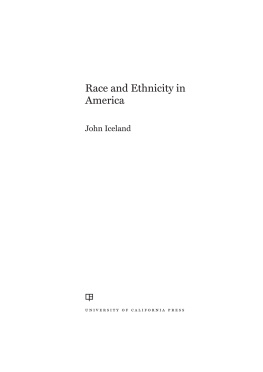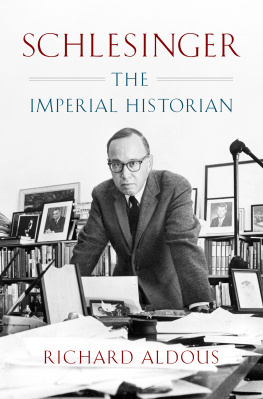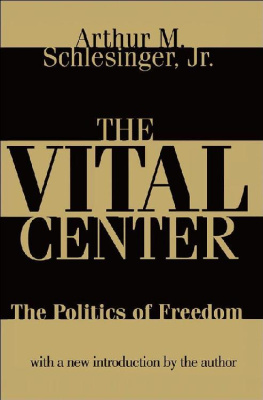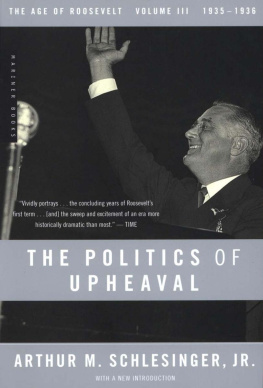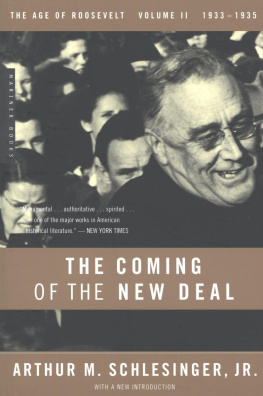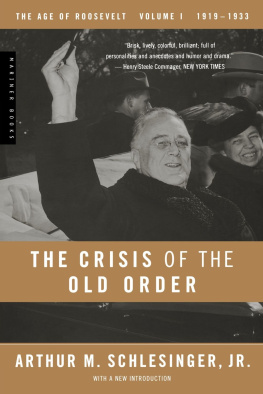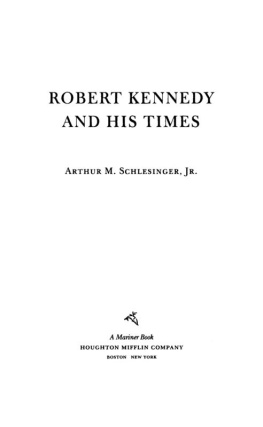The Disuniting
of America

Books by
ARTHUR M. SCHLESINGER, JR.
ORESTES A. BROWNSON
THE AGE OF JACKSON
THE VITAL CENTER
THE GENERAL AND THE PRESIDENT
(with Richard Rovere)
THE CRISIS OF THE OLD ORDER
THE COMING OF THE NEW DEAL
THE POLITICS OF UPHEAVAL
THE POLITICS OF HOPE
A THOUSAND DAYS: JOHN F. KENNEDY IN THE WHITE HOUSE
THE BITTER HERITAGE
THE CRISIS OF CONFIDENCE
THE IMPERIAL PRESIDENCY
ROBERT KENNEDY AND HIS TIMES
THE CYCLES OF AMERICAN HISTORY
The Disuniting
of America
Reflections on a
Multicultural Society

Revised and Enlarged Edition
ARTHUR M.
SCHLESINGER, JR.
W.W. NORTON & COMPANY
New York London
Contents


The Disuniting of America was first published in 1991 by Whittle Books in its Larger Agenda Series as a contribution to the debate over the then new phenomenon of multiculturalism. In 1992 W. W. Norton brought out a slightly revised trade edition.
In the half dozen years since original publication, new aspects of the debate have emerged. This second Norton edition brings the text up to date, amplifies a number of points, identifies new issues, and adds an epilogue discussing the impact on the Bill of Rights of both multiculturalism on the left and monoculturalism on the right. A new appendix contains the authors annotated list of books that indispensably illuminate the American experience.
Arthur M. Schlesinger, Jr.

T he fading away of the cold war has brought an era of ideological conflict to an end. But it has not, as forecast, brought an end to history. One set of hatreds gives way to the next. Lifting the lid of ideological repression in eastern Europe releases ethnic antagonisms deeply rooted in experience and in memory. The disappearance of ideological competition in the third world removes superpower restraints on national and tribal confrontations. As the era of ideological conflict subsides, humanity entersor, more precisely, re-entersa possibly more dangerous era of ethnic and racial animosity.
The hostility of one tribe for another is among the most instinctive human reactions. Yet the history of our planet has been in great part the history of the mixing of peoples. Mass migrations have produced mass animosities from the beginning of time. Today, as the twentieth century draws to an end, a number of factorsnot just the evaporation of the cold war but, more profoundly, the development of swifter modes of communication and transport, the acceleration of population growth, the breakdown of traditional social structures, the flight from tyranny, from poverty, from famine, from ecological disaster, the dream of a better life somewhere elseconverge to drive people across national frontiers.
The world shrinks, and its population is more mixed up today than ever before. Shrinkage subjects the world to a whipsaw, tearing it in opposite directionsintense pressures toward globalization on the one hand, toward fragmentation on the other. The world market, electronic technologies, instantaneous communications, e-mail, CNNall undermine the nation-state and develop a world without frontiers. At the same time, these very internationalizing forces drive ordinary people to seek refuge from unrelenting global currents beyond their control and understanding. The more people feel themselves adrift in a vast, impersonal, anonymous sea, the more desperately they swim toward any familiar, intelligible, protective life-raft; the more they crave a politics of identity. Integration and disintegration thus are the opposites that feed on one another. The more the world integrates, the more people cling to their own in groups increasingly defined in these post-ideological days by ethnic and religious loyalties.
What happens when people of different ethnic origins, speaking different languages and professing different religions, settle in the same geographical locality and live under the same political sovereignty? Unless a common purpose binds them together, tribal antagonisms will drive them apart. In the century darkly ahead, civilization faces a critical question: What is it that holds a nation together?
No one in the nineteenth century thought more carefully about representative government than John Stuart Mill. The two elements that defined a nation, as Mill saw it, were the desire on the part of the inhabitants to be governed together and the common sympathy instilled by shared history, values, and language. Free institutions, he wrote, are next to impossible in a country made up of different nationalities. Among a people without fellow feeling, especially if they read and speak different languages, the united public opinion, necessary to the working of representative government, cannot exist. It is in general a necessary condition of free institutions that the boundaries of government should coincide in the main with those of nationalities.
In our world, those boundaries coincide less and less. There are few ethnically homogeneous states left. Events each day demonstrate the fragility of national cohesion. Everywhere you look, tribalism is the cause of the breaking of nations. The Soviet Union, Yugoslavia, Czechoslovakia have already split. India, Indonesia, Ireland, Israel, Lebanon, Sri Lanka, Afghanistan, Rwanda are in ethnic or religious turmoil. Ethnic tensions disturb and divide China, South Africa, Romania, Turkey, Georgia, Azerbaijan, the Philippines, Ethiopia, Somalia, Nigeria, Liberia, Angola, Sudan, Congo, Guyana, Trinidadyou name it. Even nations as stable and civilized as Britain and France, Belgium, and Spain, face rising ethnic and racial troubles. The virus of tribalism, says the Economist, risks becoming the AIDS of international politicslying dormant for years, then flaring up to destroy countries.
Take the case of our neighbor to the north. Canada has long been considered the most sensible and placid of nations. Rich, peaceful and, by the standards of almost anywhere else, enviably successful, the Economist observes: yet today on the brink of bust-up. Michael Ignatieff (the English-resident son of a Russian-born Canadian diplomat and thus an example of the modern mixing of peoples) writes of Canada, Here we have one of the five richest nations on earth, a country so uniquely blessed with space and opportunity that the worlds poor are beating at the door to get in, and it is tearing itself apart. If one of the top five developed nations on earth cant make a federal, multi-ethnic state work, who else can?
The answer to that increasingly vital question has been, at least until recently, the United States.
Now how have Americans succeeded in pulling off this almost unprecedented trick? Countries break up when they fail to give ethnically diverse peoples compelling reasons to see themselves as part of the same nation. As Chinua Achebe, the Nigerian novelist, writes of his own country, one of the richest in Africa but today on the brink of chaos, This is the Nigerians greatest weaknesstheir inability to face grave threats as one people instead of as competing religious and ethnic interests.
The United States has worked, thus far. A multiethnic country, it has somehow, except for a terrible civil war, cohered and endured. What is it that, in the absence of a common ethnic origin, has kept Americans together over two turbulent centuries? For America was multiethnic from the start. Hector St. John de Crvecoeur emigrated from France to the American colonies in 1759, married an American woman, settled on a farm in Orange County, New York, and published his


